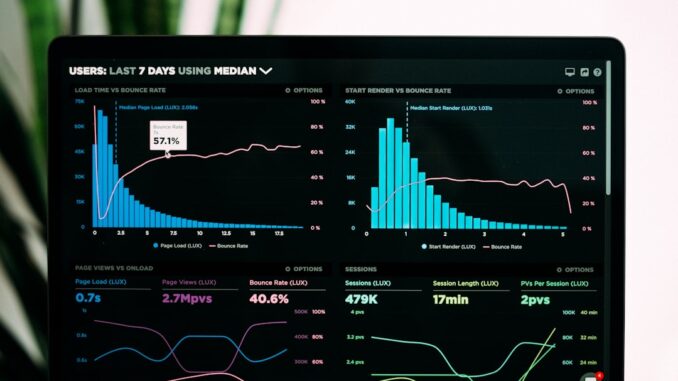
In today’s data-driven world, organizations face the challenge of managing vast amounts of information spread across various systems and departments. Holistic data management offers a solution by integrating these disparate data sources into a cohesive framework, enabling more informed decision-making and streamlined operations.
Understanding Holistic Data Management
At its core, holistic data management involves consolidating data from multiple sources—such as databases, applications, and external feeds—into a single, unified system. This integration ensures consistency, accuracy, and accessibility, allowing organizations to leverage their data more effectively.
Case Studies Demonstrating Success
Procter & Gamble (P&G): Enhancing Master Data Management
P&G faced challenges with managing data across numerous SAP instances, leading to inefficiencies and errors. By deploying a data quality software, they centralized their data management, resulting in improved productivity and reduced operational risks. Automated processes saved time for data stewards and minimized manual errors, while management gained timely access to health reports and performance metrics. (research.aimultiple.com)
Join thousands managing data across sites with ease TrueNAS delivers control in one view.
Goodway Group: Implementing a Holistic Data Strategy
A major office supply retailer partnered with Goodway Group to consolidate over 20 fragmented data sources. The integration led to the development of a custom Tableau dashboard, providing real-time access to reporting and insights. This approach drove agile marketing tactics, resulting in a 50% increase in Return on Advertising Spend (ROAS) over six months. (goodway-media.com)
Melio Consulting: Improving Healthcare Data Quality
A large hospital group collaborated with Melio Consulting to enhance the quality of their SPC Quality Scorecard, which tracks key metrics related to patient and employee safety and experience. By implementing an integrated data quality solution on Azure Databricks, they improved data quality by approximately 30%, leading to more reliable decision-making and reporting. (melio.ai)
Key Benefits of Holistic Data Management
-
Improved Data Quality: Centralizing data sources reduces inconsistencies and errors, leading to more reliable information.
-
Enhanced Decision-Making: With unified data, organizations can perform comprehensive analyses, uncovering insights that drive strategic decisions.
-
Operational Efficiency: Automated processes and centralized data reduce manual efforts, speeding up workflows and reducing costs.
-
Scalability: A holistic approach allows organizations to scale their data management systems as they grow, accommodating increasing data volumes without compromising performance.
Implementing Holistic Data Management
To successfully implement holistic data management, organizations should follow these steps:
-
Assess Current Data Landscape: Identify all data sources, their locations, and how they interact.
-
Define Data Governance Policies: Establish standards for data quality, security, and compliance.
-
Choose the Right Tools and Technologies: Select platforms that support data integration, storage, and analysis.
-
Develop a Data Integration Plan: Create a roadmap for consolidating data sources, ensuring minimal disruption to ongoing operations.
-
Train Staff and Foster a Data-Driven Culture: Equip employees with the skills to utilize the new system and encourage data-driven decision-making.
Challenges and Considerations
While the benefits are clear, organizations may encounter challenges such as resistance to change, data privacy concerns, and technical complexities during implementation. Addressing these issues requires careful planning, clear communication, and ongoing support.
In conclusion, holistic data management is a powerful strategy that enables organizations to harness the full potential of their data. By integrating diverse data sources into a unified system, companies can improve data quality, enhance decision-making, and achieve operational efficiency. The success stories of P&G, Goodway Group, and the hospital group underscore the tangible benefits of this approach. As organizations continue to navigate the complexities of the digital age, adopting holistic data management practices will be crucial for sustained success.
References


The case studies highlight diverse applications of holistic data management. How are organizations addressing the challenge of maintaining data lineage and audit trails when integrating data from multiple sources, especially concerning regulatory compliance?
That’s a great point about data lineage and audit trails! Many organizations are leveraging metadata management tools and automated data catalogs to track data transformations and ensure compliance. Strong data governance policies, including clear roles and responsibilities, are crucial too. What specific industries do you think struggle most with this?
Editor: StorageTech.News
Thank you to our Sponsor Esdebe
Given the importance of choosing the right tools, what criteria should organizations prioritize when evaluating platforms for data integration and analysis to ensure they align with their specific business needs and technical capabilities?
That’s an excellent question! Beyond technical capabilities, I’d suggest organizations also heavily weigh the vendor’s commitment to long-term support and their platform’s ability to integrate with future technologies. Scalability is key, but adaptability is crucial too for sustained success. What are your thoughts?
Editor: StorageTech.News
Thank you to our Sponsor Esdebe
The mention of fostering a data-driven culture is essential. How do you see organizations effectively balancing the need for widespread data access with the equally important considerations of data security and privacy, particularly when dealing with sensitive information?
That’s a crucial point! Balancing data access and security is tricky. I think role-based access control, combined with data anonymization techniques for sensitive information, can strike a good balance. It ensures that the right people have access to the data they need, while still protecting privacy. What other strategies have you seen work well in practice?
Editor: StorageTech.News
Thank you to our Sponsor Esdebe
“Holistic” is impressive, but consolidating 20 data sources like Goodway Group did? That sounds like herding cats. I wonder, did they offer the cats (or, you know, *data sources*) incentives to play nice, or was it more of a ‘my way or the highway’ approach? Enquiring minds want to know!
That’s a fun analogy! While I don’t have the specifics of Goodway’s approach, successful data consolidation often involves a bit of both – some strategic incentives (like demonstrating improved reporting) alongside clearly defined standards. Perhaps they used a carrot-and-stick approach to data governance? I will dig around!
Editor: StorageTech.News
Thank you to our Sponsor Esdebe